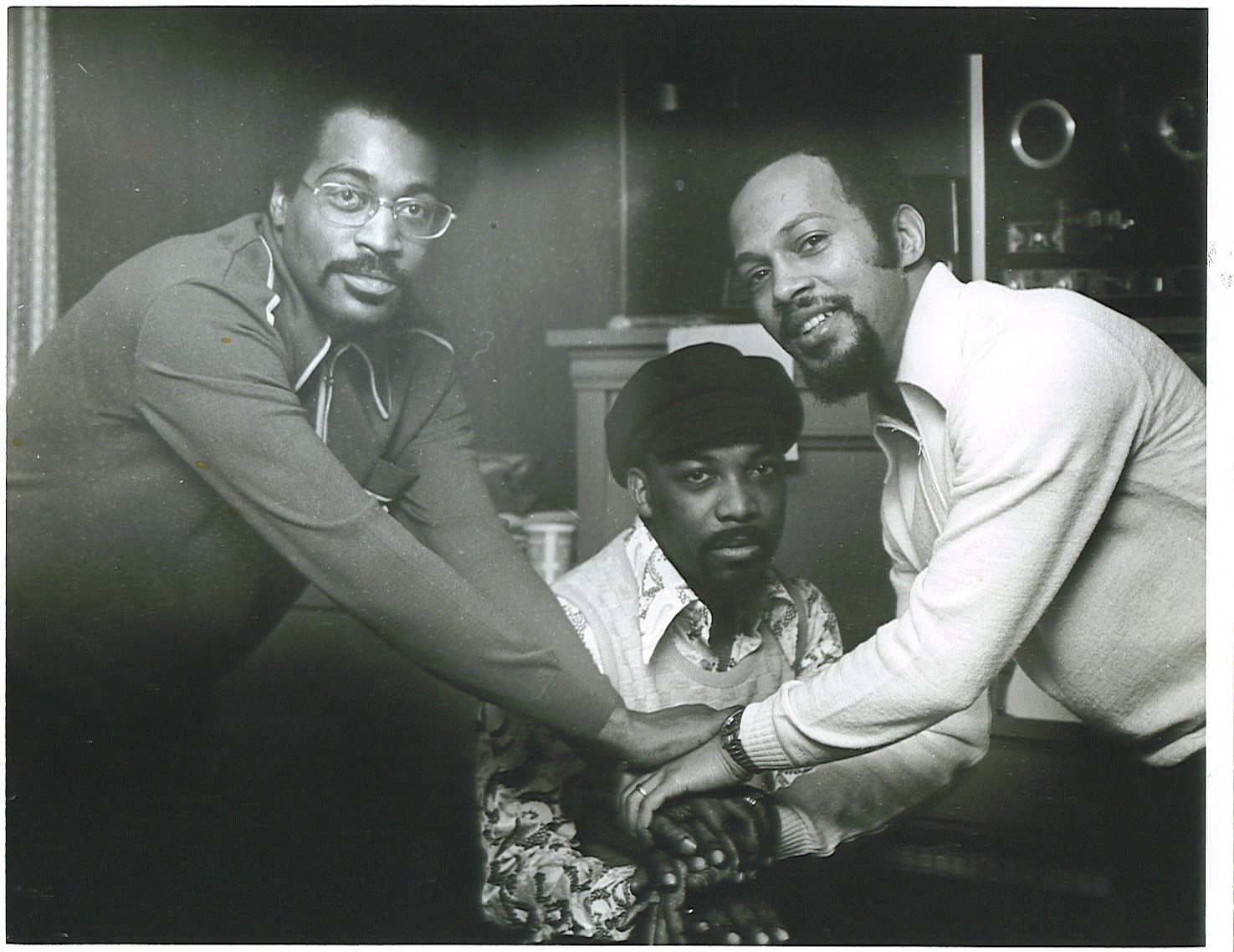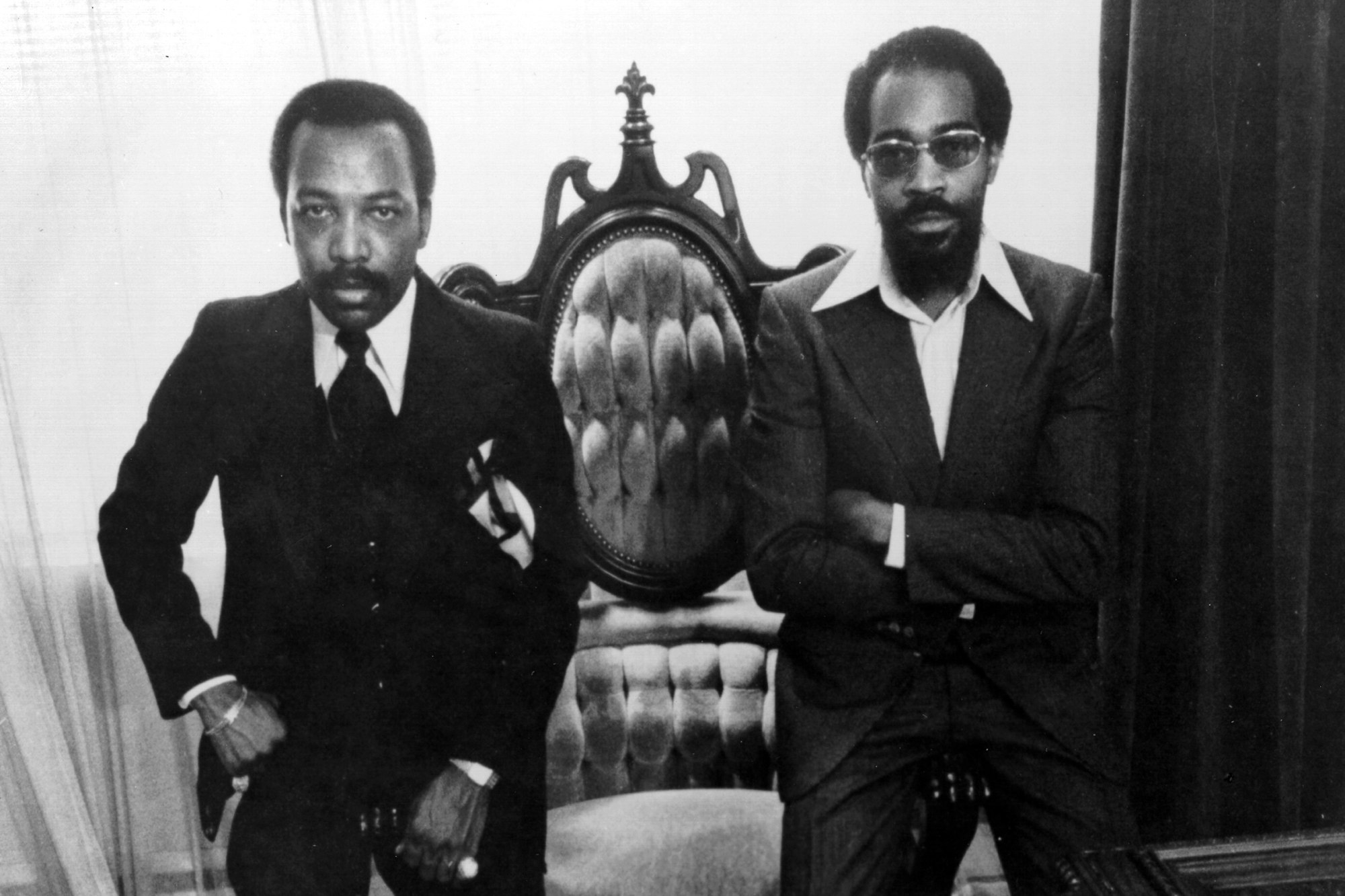KENNY GAMBLE, LEON HUFF MOURN LOSS OF LONGTIME PARTNER THOM BELL
Thom Bell, the Grammy-winning producer who heavily influenced Philadelphia soul music, died Thursday. He was 79. His lawyer, Michael Silver, told the Philadelphia Inquirer that Bell passed away at his home in Bellingham, Washington. A cause of death was not immediately available. Bell, Kenny Gamble and Leon Huff worked together to create “The Sound of Philadelphia” in […]
HISTORIC DOCUMENTARY ON MUSIC ICONS KENNY GAMBLE, LEON HUFF AND THOM BELL
WARNER MUSIC ENTERTAINMENT, WARNER CHAPPELL MUSIC, IMAGINE DOCUMENTARIES AND JIGSAW PRODUCTIONS ANNOUNCE HISTORIC DOCUMENTARY ON MUSIC ICONS KENNY GAMBLE, LEON HUFF AND THOM BELL The film will explore their prolific lives and lasting legacies as songwriters and producers, telling the incredible story of The Sound of Philadelphia Alex Gibney to Executive Produce; Sam Pollard [&hell
Urban One Honors Celebrate ‘The Soundtrack Of Black America’ This MLK Jr. Day
Cathy Applefeld Olson ContributorHollywood & EntertainmentI cover music, the music industry, and entertainment + brand Follow Singer, songwriter and producer Ne-Yo will host yhe fourth Urban One Honors. TV ONE “Everybody’s familiar with what Martin Luther King’s dream was and that was basically, in laymen’s terms, for everyone to rock together. To realize that underneath [&he
Sounds of the 70s with Johnnie Walker Special Guests: Philly Soul legends Kenny Gamble & Leon Huff
Click here to listen to the interview Special Guests: Philly Soul legends Kenny Gamble & Leon Huff Released On: 05 Dec 2021 Available for 22 days The very best mix of music from one incredible decade, all lovingly curated by Johnnie. His guests this week are two giants of Seventies soul music, Kenny Gamble and […]
Gamble & Huff Remix Bundles
Remixes of Gamble & Huff classics by iconic artists are available on Spotify. Click to listen. November 2021 Philadelphia International Records: G-Nice Teddy Pendergrass Remixes https://open.spotify.com/album/3ub2mCHkvYYJWaOfxjoNAd September 2021 Philadelphia International Records: The Mike Maurro Remixes https://open.spotify.com/album/3J1fzr1XtKbgAfxnN6aRrP?si=BErb6OpE
R&B Royalty Gamble & Huff Celebrate 50 Years of Philadelphia International Records With Harlem Live Event & New Remixes
The legacy of R&B songwriting duo Kenneth Gamble and Leon Huff took center stage in Harlem on Wednesday night to celebrate the 50th anniversary of Philadelphia International. By Carl Lamarre From left, Rob Santos, Chuck Gamble, Paige Barton, Caliph Gamble and Andy McGrathSoul Brother On Wednesday night (Nov. 17), the legacy of renowned R&B songwriting duo […]
Gamble & Huff’s Legendary Music Label Philadelphia International Records Celebrates 50th Anniversary
ByFisher JackJanuary 25, 2021 *Legacy Recordings, the catalog division of Sony Music Entertainment, and Warner Chappell Music, the global publishing arm of Warner Music Group, are thrilled to announce today the launch of the yearlong campaign in 2021 to celebrate the 50th anniversary of one of music’s most historic record labels, Philadelphia International Records. The
A special podcast with the legendary producers Gamble, Huff, Jimmy Jam and Terry LewisPatty and the Millennials Podcast
A special podcast with the legendary producers Gamble, Huff, Jimmy Jam and Terry Lewis, Patty and the Millennials Podcast On this special edition of the podcast, Patty sits down with music legends – Jimmy Jam, Terry Lewis, Kenneth Gamble and Leon A. Huff! Patty also brings in additional voices to pay tribute to the legends. […]
Gamble & Huff mark 50 years of Philly Soul and socially conscious music
By the early 1970s, Kenny Gamble and Leon Huff were regularly meeting in Gamble’s office by an upright piano with a list of titles and a tape recorder to talk about the news or what was happening throughout Philadelphia. Their chemistry as songwriters and producers, combined with those frequent chats, laid the foundation for some of popular music’s most memorable, socially conscious
Gamble And Huff Talk 50 Years Of Philly Soul & Creating Black Music Month
Hear from the legendary GRAMMY-winning songwriter/producer duo Kenny Gamble and Leon Huff themselves about creating Philadelphia International Records, Black Music Month and a lifelong friendshipCHRISTOPHER A. DANIELMEMBERSHIP JUN 30, 2021 – 11:15 AM By 1971, prolific songwriters/producers Kenny Gamble and Leon Huff had a catalog of R&B and pop hits includin

